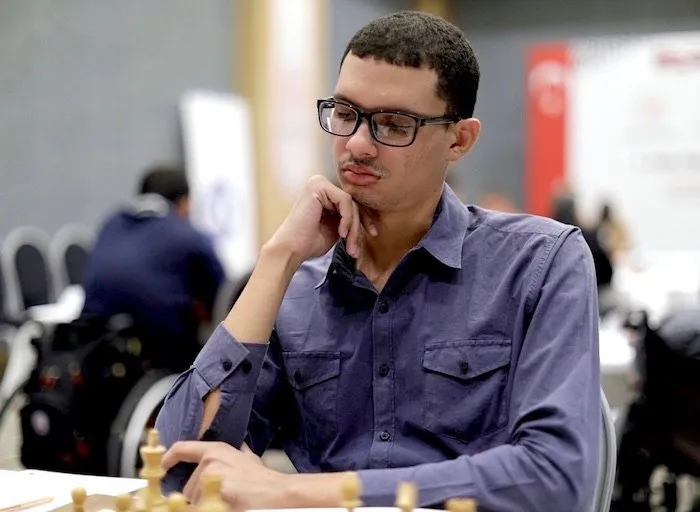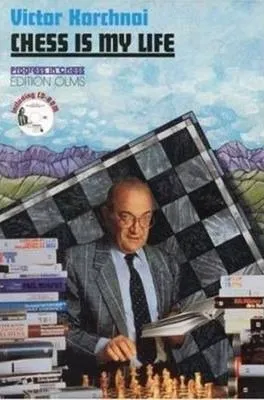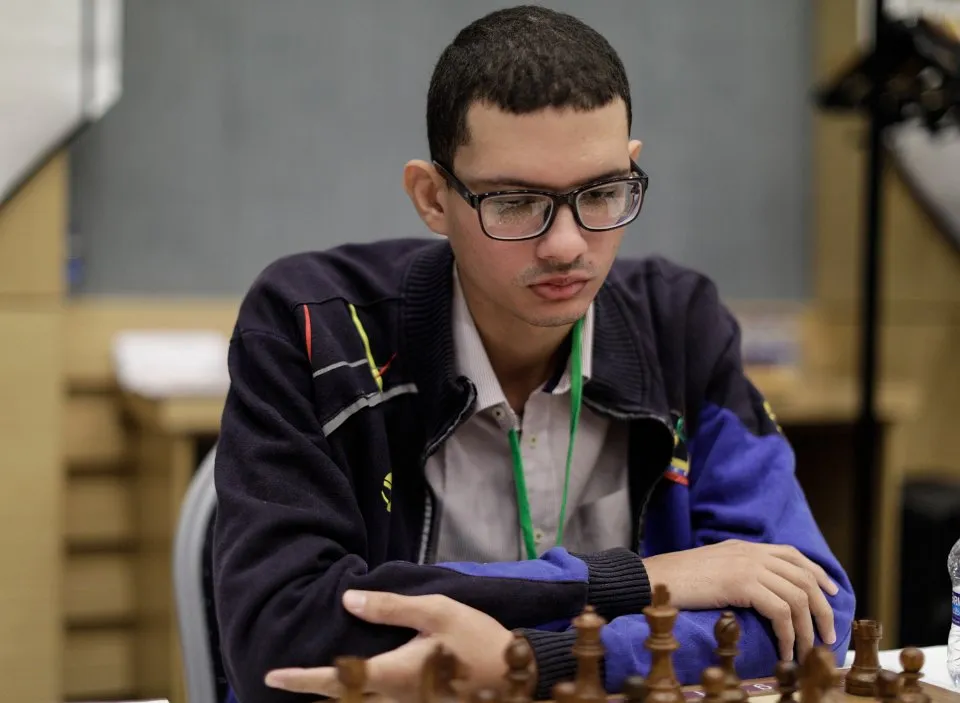
Victor Abiad (@vjap55) -Confederation Cup for Disabled People Ankara 2019
Hey, don’t look at me like that! I know you want to look really cool by showing your “fancy poker face” while you’re trying to come up with your next move, but seriously, let me ask you quickly: what exactly is going on in your mind?.
Many iconic chess players and theoreticians of history have tried to systematize everything related to the thought process, and to be honest this seems to be a journey that is far from over. The fact is that despite the huge progress that the chess community has achieved thanks to the contributions of Botvínnik, Dorfman, Kotov and others, that “black box” still cannot be unlocked.
On top of that, I’ve heard dozens of times claims like “in chess, everything is relative”, which means to some people that many things they have learned from the beginning are not exactly absolute. For example, statements like “the value of the pieces changes in every position”, “rooks are better on open files”, “it’s more convenient to keep the pawn structure totally healthy” are rather common principles to follow without hesitation, but if you are a dedicated player or someone who is used to play championship games, you know that the soundness of most of those principles can disappear in a blink, especially when you’re analyzing the game with the assistance of “supersonic” chess engines, which have proven that concrete calculation is far above the traditional paradigm we use to think and look for moves.
So, is chess either relative because the things we think we know are constantly changing or because we’re not using a methodical and disciplined thought process during a game? Frankly, I couldn’t tell you the right answer, and it is a topic we can discuss for hours and hours. Even figuring out the correct answer to that question could be considered for many as “the holy grail” of the method of calculation in chess.
But today we are not going to talk about that. Today's post is focused on things that have nothing to do with technicalities of the game of chess, and can still affect it in some way, specifically, at a psychological level, like those inconvenient thoughts that cross your mind as you are sitting and staring at the board.
Let's start with the following question:
Have you ever pondered your thoughts?
I’m of the opinion that we should do it, because thoughts hold sway over our games. In fact, our “mental energy” is quite limited to do certain things. Looking for the best variation to outplay our opponent represents a task that takes lot of processing resources and requires concentration. That’s why the physical environments used to host a chess event should be quiet, although sometimes the problem has nothing to do with the chess venue or playing hall. It turns out that the noisiest place is often nothing more than our own heads.
Believe it or not, the things that happen in your games are somehow a consequence of those things you have lived in the past and even, more ironically, of those things you are considering to do in the future. Therefore, it’s not surprising that as we are calculating variations, the next five moves that cross our minds are overlapped by spontaneous thoughts like “I shouldn’t have spent so much money on that car” or “I need to feed my cat when I get home”. In other words, this overlap is not cool and I could even tell it’s very similar to the interference of two radio waves. That’s what I meant by the title of this post. In the middle of a game, you could remain quiet and look quite thoughtful, but in reality, you are not thinking at all about your game and the position.
If you take chess seriously, something you should do is finding out how to focus appropriately. Sounds obvious, but in my experience, I’ve seen how even the strongest players fall prey to lack of concentration. As I mentioned, our ability to calculate is limited, so we have to optimize it as much as we can, but that's not going to happen overnight. So, why not start by solving our daily problems if possible before we enter a tournament? Are there any unfinished business that might bother you during a game? If you can't get rid of them, you need to learn to ignore them during your games.

Chess is My Life by Victor Korchnoi
Like some GMs have put it: “chess is like life”, and I couldn’t agree less with this mindset. If your life is a bit chaotic and messy, you might expect that to transfer to the chessboard, sometimes ending up badly. Don’t forget that your technical preparation is essential: opening, strategy, tactics, middlegame, endgame and so on, but it would be really cool that before every match or tournament you could be as relaxed as possible. Get rid of everything that makes you feel overwhelmed and even clean your room (hahahaha, just kidding, but it could work).
To sum up
Many players usually don’t take too long to choose a move because they hold the misconception that spending time in analyzing the position is not fun, but, believe me, losing games due to frequent oversights and rushed moves is much less fun.
We need concentration to calculate better. It is the most obvious thing you might hear, but it is ultimately true. Concentration doesn’t mean you stare at the board. Don’t make it fake concentration, which is even worse, as it prevents you from improving further.
There are a bunch of tips you may come cross out there that can help you take your concentration to the next level, and they are really useful for everything, not necessarily only for chess. For example, try to add more hours to your sleep routine, just like Magnus Carlsen himself has suggested a few times. According to him, he tries to rest a lot before each game, which is fairly reasonable since the more rest you get, the more focused you are likely to be.
Also, you can try meditation. Don’t get me wrong, I am not saying you should become a shaolin monk or a professional in the field, but meditating for 5-10 minutes a day won’t kill you. Actually, it’s going to help you a lot in terms of concentration. I do love this because it’s a cool way to have control under your breathing and helps you calm down, which is perfect in those moments of “high voltage” and stress during a complicated game.Of course, another important thing you definitely can to do is work out. Unfortunately, as chess players we are not necessarily well-known for being devoted to physical exercise, but putting aside any possible stereotypes, if you ask a high-level chess player (professional, GMs, etc.) about it, he will surely tell you that working out is part of his whole preparation routine. Let me give you an example of why this is important: when you are playing a five-hours chess game, you’re likely to feel the effects of fatigue, not to mention that you could end up calculating moves as you get dragged away by unwanted back pain (noise in your brain, remember?). It will increase your resistance and make you stronger. That’s why working out is so, so important. You cannot separate the body from the mind!.
Ok, hivers, that’s all for now. I hope you can find this post useful. See you next time.
“I give 98 percent of my mental energy to chess, others give only 2 percent” (Bobby Fischer).
Do you want to play some chess online?
Check @stayoutoftherz’s posts and join every Friday #HiveChess tournament on lichess.org, the chess community is growing up and we would like you to be part of it!
Thanks @eniolw for publishing your daily chess puzzles, when I discovered them I was able to hook into this great community



